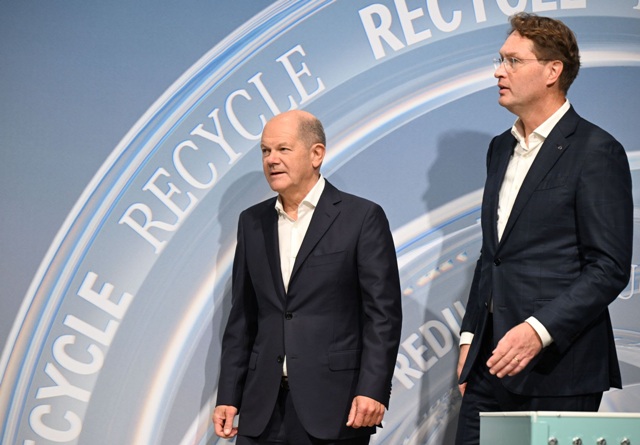Mercedez-Benz tasks EU on Chinese electric vehicles, opens battery recycling line

We need more free trade instead of new trade barriers. That is why it is important to find a solution that suits both the EU and China
Admin I Tuesday, October 22, 2024
BERLIN – The head of German luxury carmaker Mercedes-Benz called for the European Union to de-escalate the dispute with China over tariffs on electric cars.
“We need more free trade instead of new trade barriers. That is why it is important to find a solution that suits both the EU and China,” chief executive Ola Källenius told the Monday edition of Bild newspaper.
“The negotiations for this take time. In order not to jeopardize them, the EU should postpone the enforcement of the planned tariffs,” he said.
At the start of the month a majority of EU countries paved the way for additional tariffs of up to 35.3% on battery-powered electric vehicles imported from China. Germany, however, voted against the measure amid concerns over retaliatory actions which could hurt the country’s giant car industry.
The European Commission had pressed for extra tariffs after an investigation accused Beijing of subsidizing domestic electric car manufacturers and thus distorting the market in the EU.
But whether the import tariffs will actually come into force at the beginning of November is still up to the commission. The plans can still be dismissed if Brussels reaches a solution with China at the negotiating table.
Meanwhile, Mercedes-Benz has opened its first vehicle battery recycling factory in the southern German town of Kuppenheim on Monday.
The factory will in future recover recyclable materials for more than 50,000 new battery modules every year, the car manufacturer announced.
German Chancellor Olaf Scholz, who attended the opening ceremony, said the factory combines two passions of the Germans, cars and recycling.
Scholz earlier toured the plant with Mercedes-Benz chief executive Ola Källenius and had the processes explained to him.
What Mercedes is planning in Kuppenheim makes sense, said Scholz. Källenius described the factory as a “milestone on the road to greater sustainability in raw materials.”
According to the Stuttgart-based Mercedes-Benz, the factory’s concept covers all steps from shredding the battery modules to drying and processing the recyclable materials.
Mercedes expects a recovery rate of more than 96%.
In the mechanical process, plastics, copper, aluminium and iron are sorted first. In the downstream process, the metals cobalt, nickel and lithium are then extracted individually.
According to Mercedes, these recyclates are of battery quality and are therefore suitable for the production of new vehicle battery cells.
In view of the planned transition to electric vehicles, recycling is likely to become increasingly important in the coming years.
Initially, the batteries can still be used in the so-called “second life,” for example as storage units. However, recycling could later reduce Germany’s dependence on imported raw materials, particularly from Asian countries.

